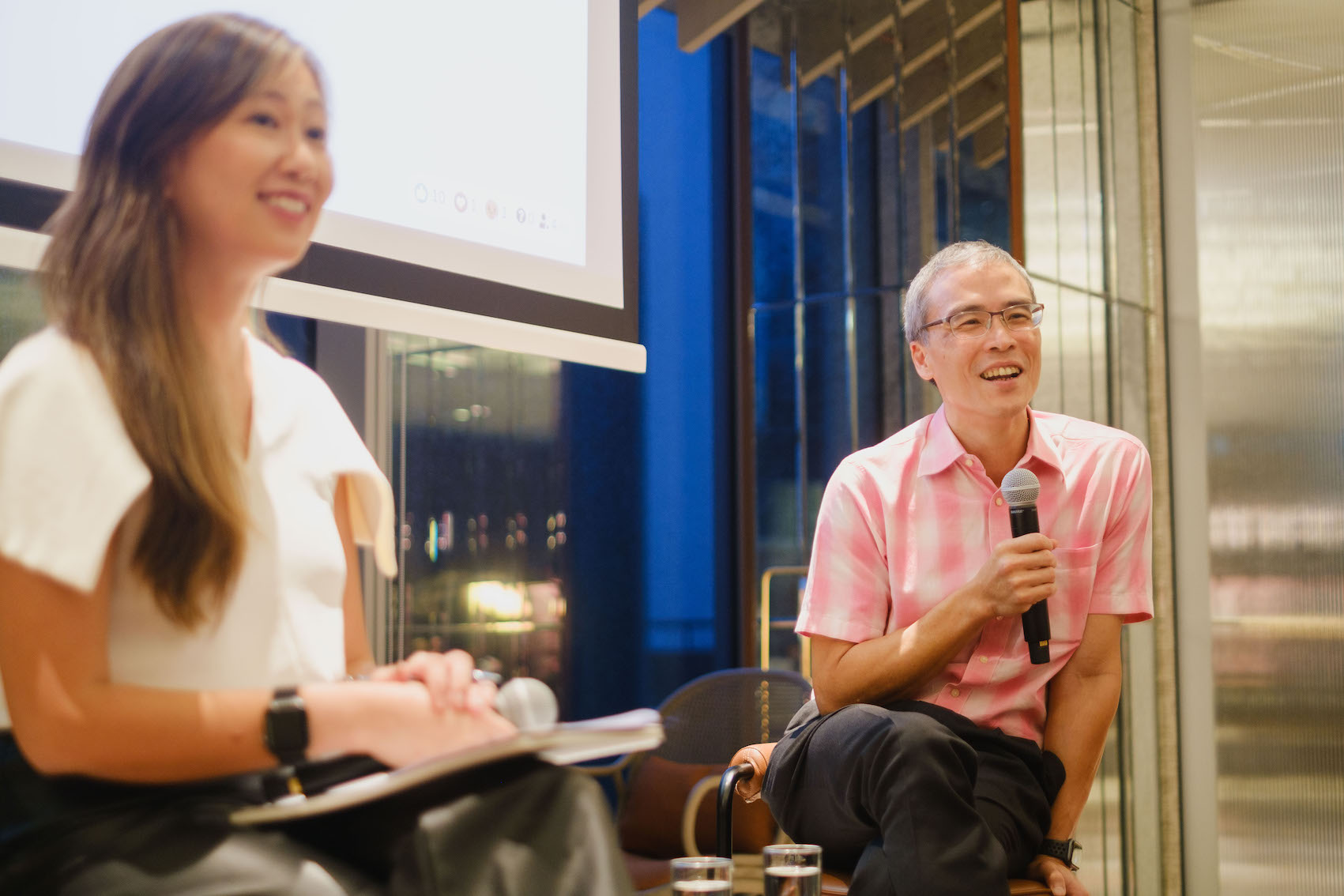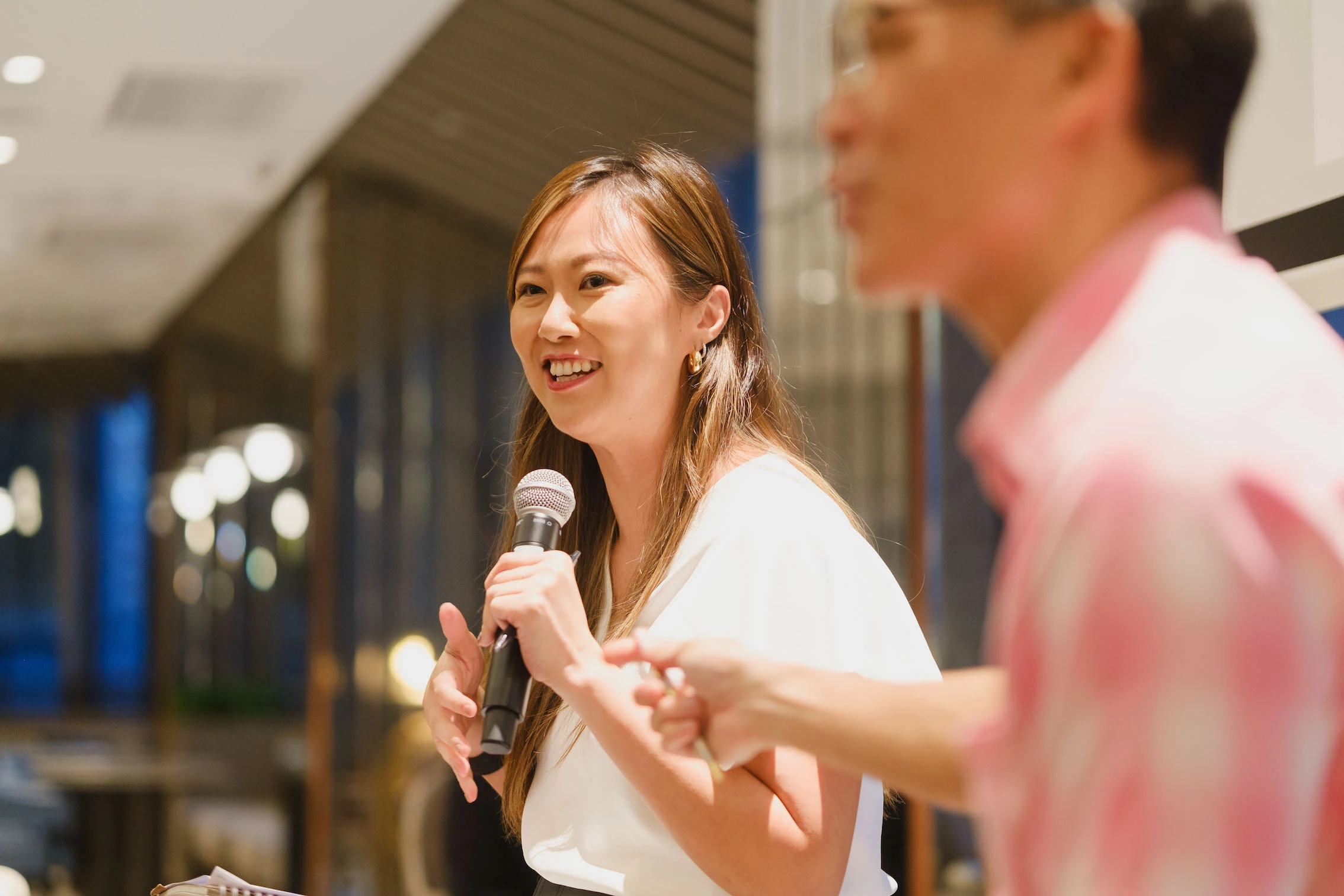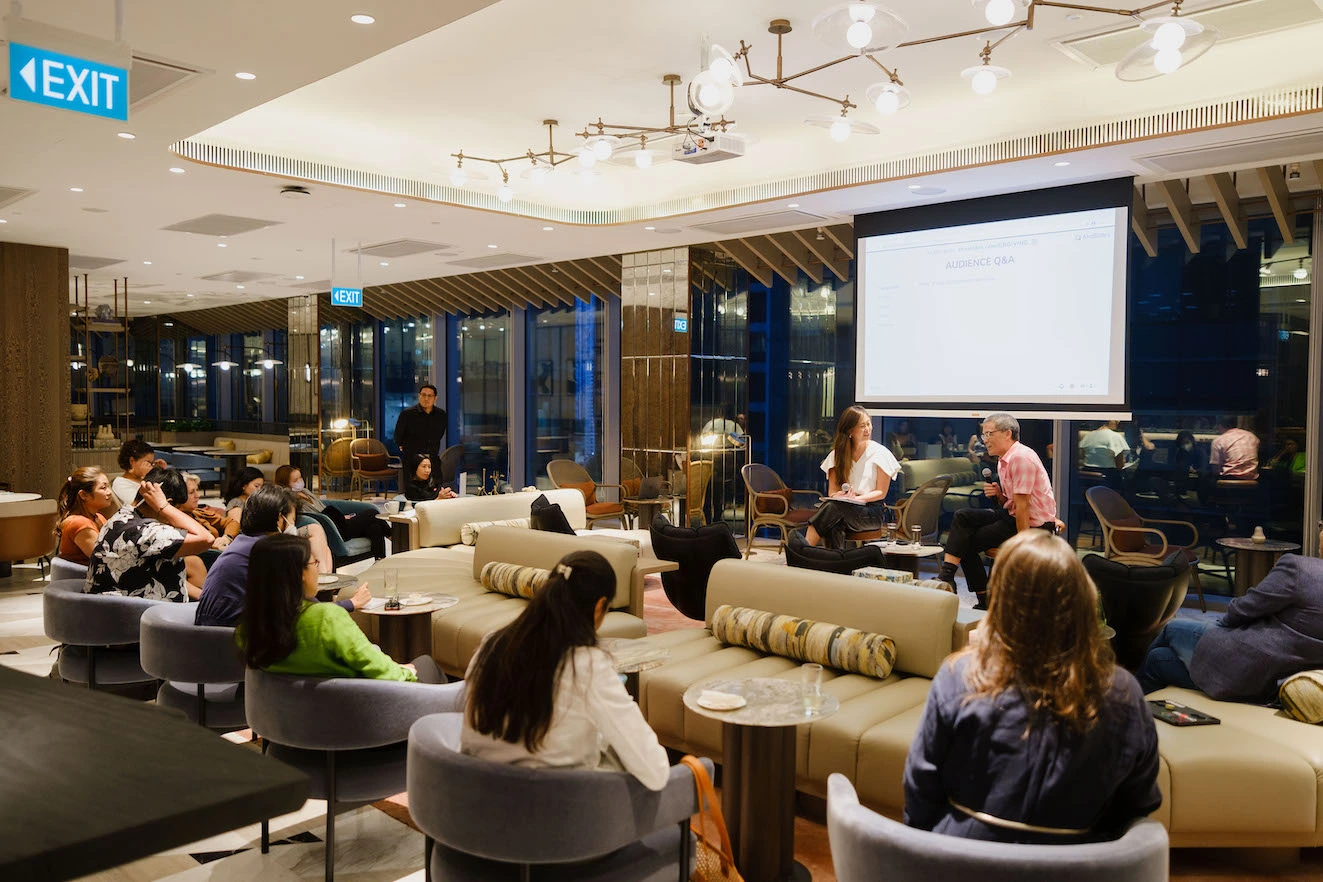Laurence Lien, founder of Asia Philanthropy Circle and chairman of the Lien Foundation, shares how one can make a difference a little bit at a time.

Lee Xueling (left) and Laurence Lien discuss doing good in daily doses.
When it comes to Laurence Lien, you could say philanthropy is in his blood. His grandfather is banker and hotelier Dr George Lien Ying Chow, who is best known among charity circles as the founder of the Lien Foundation. Dr Lien is also the founder of Overseas Union Bank, which merged with United Overseas Bank in 2001.
In 1980, Dr Lien donated almost half of his wealth to the Lien Foundation, whose “radical philanthropy” aims to address root issues in eldercare and early childhood development in Singapore. The Foundation also works to improve access to water and sanitation among rural communities in Southeast Asia.
Lien has over two decades of philanthropy on his belt. He joined the family-led Lien Foundation board in 1999, and was the CEO of the National Volunteer and Philanthropy Centre.
He was a guest speaker at How to Be an Everyday Philanthropist, a Greater Club event on 2 February. The discussion was moderated by Lee Xueling, Senior Manager at The Bridgespan Group, a global non-profit that consults with nonprofits, NGOs, donors, and investors to advance learning and accelerate the impact of their work and philanthropy.
It is one of the business club’s lineup of events focused on the Greater purpose, the social, community and philanthropic pillar of the club.
Lien remembers one particular event that impressed his grandfather. “I was probably one of the most effective in getting money from my grandparents,” he says.
One of these requests involved funding a new computer lab for a drug rehabilitation centre in Singapore in the 1990s. “My grandfather actually visited the labs when I wasn’t there. And he was very touched by what he saw,” he says.
Inspired by his tenacity, he was asked by his grandfather to join the Lien Foundation board, despite being significantly younger and less experienced than most of the board members. Today, he chairs the Lien Foundation, a role he has taken on since 2001.
Here are some takeaways from the session.
Volunteering your time to social causes is just as valuable
In his former role as CEO of NVPC, Lien’s mantra was being a volunteer first and foremost before philanthropy. As a volunteer, he was able to see on-the-ground issues that social groups and charities often face. There was always a lack of volunteers, despite a large outpouring of donations from Singaporeans.
Whether one is rich or poor, everyone could commit a little bit of time to the cause they are passionate about. “Everyone has 24 hours. But nobody has more or less time,” he says.
How you want to use that time to volunteer is really up to you. “It could be your work skills and assets that charities could bounce off, or you could do something different from what you already do in your day-to-day job just to get some distance from work”, he notes.
Volunteering is also the most effective way one could get face-to-face with issues that the underprivileged face, as well as getting to know how your donations are put to use.
For instance: Interacting with multi-stressed families, which are families who have to cope with several issues such as financial, parenting and social difficulties at the same time.
“We live in our bubbles and we have no idea what these families go through,” says Lien. “They have to navigate 10 different problems and it’s really not easy for them to get by,” he says.
Leave your assumptions about non-profit work at the door
Private sector workers who are volunteering in non-profits for the first time are shocked to realise that things often move at a much slower pace, due to the complex and often frustrating nature of social work. They find that their fix-it mentality doesn’t apply in non-profit work.

Non-profit work has far more complex social issues to address, compared to the private sector, says Lee.
Non-profits often tread the line of mediocrity, and it’s difficult for them to truly be excellent at their work.
That’s because the payoff for non-profit work can’t really be measured in financial profit or sales volumes. Rather, the root problem of some social causes goes much deeper. Donations may help in resolving short-term symptoms, but they don’t address the root of the problem and prevent it to begin with.
“Let’s say a child needs an operation, you could raise millions for him,” Lien says. “But donations don’t quite solve the root cause as to why these kids need an operation. Going to the root cause is much more important,” he adds.
Exploring your passions and developing new ones
Passion for a cause that’s close to your heart is essential to pursuing charity work. “If you are not passionate about it, you will lose steam. It is hard work after all,” says Lien.
That said, Lien advises those who want to pursue philanthropy, but are not sure where to start or which cause matters to them the most, to explore different avenues and volunteer for various charities.
Lien suggests first-time philanthropists take note of the charity’s leadership, competency and their mission. “And don’t be afraid to ask the charity questions”, he adds.
He recalls having no interest in the eldercare space 25 years earlier, a segment of philanthropy that the Lien Foundation is focused on. His brother, who is a geriatrician, showed him the ropes of eldercare work, and ignited a passion in Lien for caring for older generations.
Measuring impact in the non-profit sector
It’s rather straightforward to measure impact in the for-profit sector in deliverables, profit and loss, and other metrics.
Oftentimes, real impact can only be seen over the long-term. “To know that it’s attributable to you is really hard,” he says.
Lien cites the Asia Philanthropy Circle’s School Leadership Programme as an example of how some initiatives progress more quickly than others. The programme was launched in Malaysia in 2018, and a year later in Indonesia. It trains teachers to be more effective leaders.
The programme started out with just 25 schools. In just one year, it expanded to over 100 schools.
“It was tremendous,” he says. “Just from the measurement of school performance and improvement of teacher behaviour,” he adds.
But measuring impact in other areas, such as multi-stressed families getting out of poverty, is much harder. Nevertheless, he advises volunteers helping out in complex cases to have grit and look at the big picture, and that they are making a long-term impact.
Perhaps the best indicator of success in a non-profit is to “go out of business”, says Lien. For instance, bringing multi-stressed families out of poverty for good, with the impact lasting through future generations.
Ultimately, the goal of non-profits is to instil a sense of long-term sustainability in their beneficiaries, a journey that may take years to complete, he notes.
At the Greater Business Club, we are passionate about doing good. Find out more about our social and sustainability-themed events by emailing us at talktous@thegreater.co.

